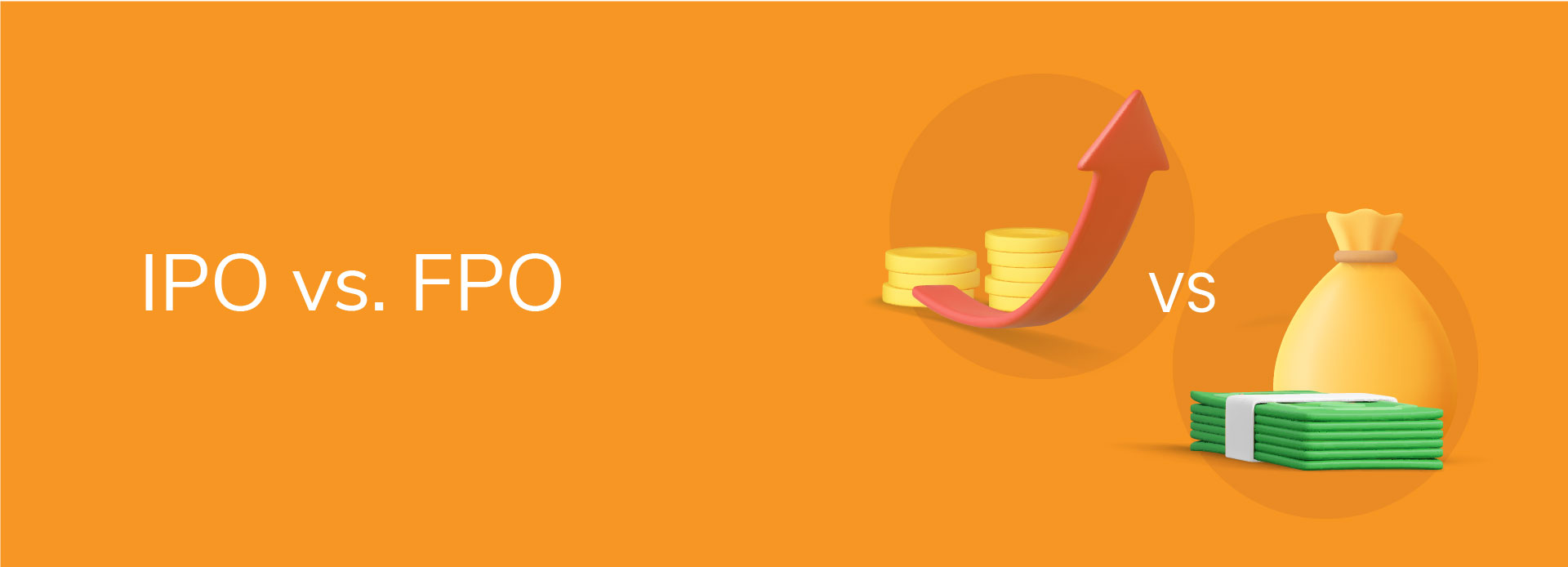
IPO Vs FPO: What is the Difference Between IPO and FPO?
23 May 2024 | By INDIE
Amidst the land of investment avenues, the buzz surrounding Initial Public Offerings (IPOs) has become a common topic of conversation, particularly among young investors eager to invest in stocks. Social media platforms and financial news outlets often showcase tales of astronomical gains from investing in IPOs, further fueling the intrigue of budding investors. However, amidst the hype, another term often gets overshadowed and remains a mystery to many: Follow-on Public Offerings (FPOs).
Even if you rely on stock broking platforms to invest in the stock market, understanding the distinction between IPOs and FPOs is a good idea. Yet, understanding this disparity can help you make informed investment decisions amidst the complexities of the financial markets.
In this blog post, you’ll discover the IPO vs. FPO comparison in detail and understand their definitions and significance, along with factors to consider before choosing one.
More About IPOs in India
An IPO marks the moment when a privately held company decides to offer its shares to the public for the first time, thereby becoming a publicly traded entity. It signifies the transition from private ownership to public trading on the stock market. A primary purpose behind pursuing an IPO is to raise capital. Companies can generate substantial funds by issuing shares to the public. The various purposes can be expansion initiatives, debt repayment, research and development, or strengthening financial reserves.
On the other hand, IPOs also provide an opportunity for investors like you to acquire shares at the offering price and potentially benefit from any subsequent appreciation in the company's stock value. This early investment stage can offer significant opportunities for growth and capital appreciation.
What Does an IPO Mean for the Company?
● An IPO provides the company with access to the capital markets on a grand scale. It can raise substantial funds that can be used to finance various endeavours and pursue growth opportunities that may have been previously out of reach.
● Going public through an IPO can significantly enhance the company's credibility in the financial markets.
● An IPO allows existing shareholders, such as founders, early investors, and employees, to realise the value of their investments.
Recommended Read: What is Value Investing?
More About FPOs in India
FPO, or Follow-on Public Offering, is a process where a publicly traded company issues additional shares to the public. Unlike an IPO, where a company goes public for the first time, an FPO occurs after a company is already listed on the stock exchange.
An important aspect of FPOs is the potential dilution of ownership for existing shareholders. When a company issues additional shares through an FPO, the ownership stake of existing shareholders gets diluted, as the new shares need to be distributed among a larger pool of shareholders. The success of an FPO often depends on market conditions and investor sentiment.
What Does an FPO Mean for the Company?
Similar to an IPO, an FPO involves the issuance of additional shares but with the dilution of ownership for existing shareholders. As new shares are distributed among a larger pool of shareholders, the ownership stake of existing shareholders decreases proportionally. Companies carefully consider the balance between raising capital through an FPO and maintaining shareholder value to mitigate the adverse effects of dilution.
What is the Difference Between IPO and FPO?
The following table highlights the difference between IPO and FPO:
Parameters |
IPO |
FPO |
Definition |
Represents the first issue of shares by a company |
Refers to the issuance of shares by a company to raise additional capital after IPO |
Price |
Fixed or variable price range |
Price is market-driven and depends on the number of shares increased or decreased |
Share capital impact |
Increases as the company issues fresh capital |
Number of shares increases in a dilutive FPO and remains the same in non-dilutive FPO |
Value |
Higher |
Lower, in most cases, because the value of the company is diluted |
Risk |
Riskier |
Less risky |
Status of the issuing company |
Unlisted |
Already listed |
Disclaimer: The information provided in this article is generic and for informational purposes only. It is not a substitute for specific advice in your circumstances. Hence, you are advised to consult your financial advisor before making any financial decision. IndusInd Bank Limited (IBL) does not influence the views of the author in any way. IBL and the author shall not be responsible for any direct/indirect loss or liability incurred by the reader for making any financial decisions based on the contents and information.





